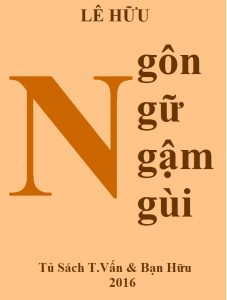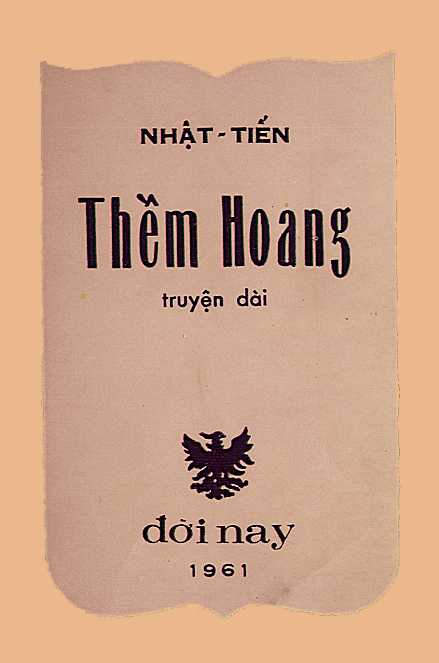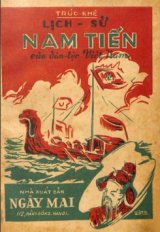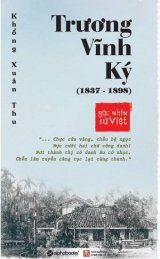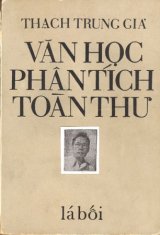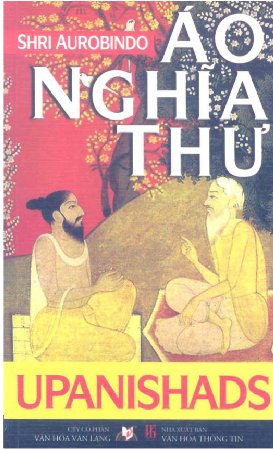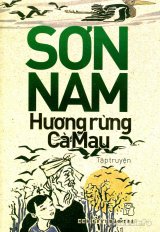|
|
|
|
|
VĂN HỌC |
GIAI THOẠI | TIỂU LUÂN | THƠ | TRUYỆN | THỜI LUẬN | NHÂN VẬT | ÂM NHẠC | HỘI HỌA | KHOA HỌC | GIẢI TRÍ | TIỂU SỬ |
-
Link Tác Phẩm và Tác Giả Tác Phẩm
Tác Giả
Thơ Văn Trần Yên Hoà & Bằng hữu
Tạp Chí
PHONG HÓA & NGÀY NAY
(Đại học Hoa Sen)
TỰ LỰC VĂN ĐOÀN, tác phẩm
(Viện Việt Học)
VĂN HỌC
Tạp chí Văn Học
DÒNG VIỆT
Trọn bộ DÒNG VIỆT
(1993-2009)
VĂN (Xuân Canh Thìn)
(vanmagazine)
TIỂU THUYẾT THỨ BẢY
NAM PHONG - TRI TÂN
THANH NGHỊ - NGÀY NAY
VĂN HOÁ NGÀY NAY
TẬP SAN SỬ ĐỊA
THẾ KỶ 21 - BÁCH KHOA
Tạp Chí VHNT Miền Nam
TÂN VĂN
TIN VĂN
Tạp chí ĐỌC VÀ VIẾT
THƯ QUÁN BẢN THẢO
Sách Xưa
• QUỐC VĂN GIÁO KHOA THƯ:
- Lớp Sơ Đẳng
- Lớp Đồng Ấu
- Lớp Dự Bị
• TỦ SÁCH TIẾNG VIỆT
• KHO SÁCH XƯA
• QUÁN VEN ĐƯỜNG
• LITTLE SAIGON
Phim và Hình Ảnh Xưa
- Cuộc Di Cư Năm 1954
- Phim "Chúng Tôi Muốn Sống"
- Phim "Nắng Chiều", 1973
- Phim Chân Trời Tím, 1971
- Hình ảnh xưa
eBooks
-
Dịch Thơ Lý Thường Kiệt, Tản Đà, Lý Đông A, Vũ Hoàng Chương sang Anh Ngữ với Chú Thích (Đàm Trung Pháp và Viên Linh) Ad-21 Ad-21 (Google - QC3) (Học Xá)
17-12-2011 | THƠ
Dịch Thơ Lý Thường Kiệt, Tản Đà, Lý Đông A, Vũ Hoàng Chương sang Anh Ngữ với Chú Thích
ĐÀM TRUNG PHÁP và VIÊN LINH
Share File.php Share File




 Heroic Spirit From The South Lý Thường Kiệt 's Poem 'Nam Quốc Sơn Hà'
Heroic Spirit From The South Lý Thường Kiệt 's Poem 'Nam Quốc Sơn Hà'
 The Vow Between mountain and River: A Heart Warming Symbol For Tản Đà 's Devotion to his Homeland
The Vow Between mountain and River: A Heart Warming Symbol For Tản Đà 's Devotion to his Homeland
 A Compelling Patriotic Poemby The Legendary Lý Đông A (1921-1946?)
A Compelling Patriotic Poemby The Legendary Lý Đông A (1921-1946?)
 Vũ Hoàng Chương (1915-1976) South Vietnam's Fearless Poet Laureate
Vũ Hoàng Chương (1915-1976) South Vietnam's Fearless Poet Laureate
:: Heroic Spirit From The South Lý Thường Kiệt's Poem 'Nam Quốc Sơn Hà'
 Lý Thường Kiệt (l019-ll05) was one of Vietnam's greatest generals. His original family name was Nguyễn, but King Lý Thánh Tông himself changed it to Lý as a token
of appreciation and gtatitude. As a young child, he told his family that he would like to become a general "who would charge into battlefields ten thousand miles away
to achieve victories, get knighted, and glorify the family line." At age 18, he was selected as a cavalry officer. Under King Lý Thánh Tông, ìn the year 1054, he was
appointed to an important post and charged with the pacification of the Thanh-Nghệ region. He pacified 5 prefectures, 6 districts, 3 streams, and 24 caves (Hoàng Xuân Hãn 1950).
The king made him a marshal and bestowed upon him the extraordinary authority of "tiết việt" or the prerogative to condemn people to death and only report to the king
afterward. The marshal also became the king's adopted younger brother (thiên tử nghĩa đệ) [1]. Upon hearing that China's Song (Tống) king was planning
to invade Đại Việt, he told the newly-installed King Lý Nhân Tông, "We should strike the enemies first instead of waiting for them to come to us. "
With the king's approval, the marshal and his troops raided three Chinese prefectures, namely Yong Zhou (Châu Ung) in Guang Xi (Quảng Tây) Province, and Qin Zhou
(Châu Khâm) and Lian Zhou (Châu Liêm) in Guang Dong (Quảng Đông) Province. Wherever Lý Thường Kiệt and his troops went, he issued "đại cáo" or
"great proclamations" to accuse the Song prime minister Wang An Shi (Vương An Thạch) of oppressing the Chinese people and to declare that troops from the Southern king
came to stop Wang An Shi's atrocious new ruling policy (tân pháp). The defeated governor of Yong Zhou committed suicide. All told, about one hundred thousand people
in those three prefectures were killed or captured by marshal Ly's troops (Nguyễn Đăng Thục 1967).
Lý Thường Kiệt (l019-ll05) was one of Vietnam's greatest generals. His original family name was Nguyễn, but King Lý Thánh Tông himself changed it to Lý as a token
of appreciation and gtatitude. As a young child, he told his family that he would like to become a general "who would charge into battlefields ten thousand miles away
to achieve victories, get knighted, and glorify the family line." At age 18, he was selected as a cavalry officer. Under King Lý Thánh Tông, ìn the year 1054, he was
appointed to an important post and charged with the pacification of the Thanh-Nghệ region. He pacified 5 prefectures, 6 districts, 3 streams, and 24 caves (Hoàng Xuân Hãn 1950).
The king made him a marshal and bestowed upon him the extraordinary authority of "tiết việt" or the prerogative to condemn people to death and only report to the king
afterward. The marshal also became the king's adopted younger brother (thiên tử nghĩa đệ) [1]. Upon hearing that China's Song (Tống) king was planning
to invade Đại Việt, he told the newly-installed King Lý Nhân Tông, "We should strike the enemies first instead of waiting for them to come to us. "
With the king's approval, the marshal and his troops raided three Chinese prefectures, namely Yong Zhou (Châu Ung) in Guang Xi (Quảng Tây) Province, and Qin Zhou
(Châu Khâm) and Lian Zhou (Châu Liêm) in Guang Dong (Quảng Đông) Province. Wherever Lý Thường Kiệt and his troops went, he issued "đại cáo" or
"great proclamations" to accuse the Song prime minister Wang An Shi (Vương An Thạch) of oppressing the Chinese people and to declare that troops from the Southern king
came to stop Wang An Shi's atrocious new ruling policy (tân pháp). The defeated governor of Yong Zhou committed suicide. All told, about one hundred thousand people
in those three prefectures were killed or captured by marshal Ly's troops (Nguyễn Đăng Thục 1967).
A furious Wang An Shi orded a large army under the command of several generals, strengthened by alliance forces from Champa (Chiêm Thành) and Chenla (Chân Lạp), to invade Đại Việt. Lý Thường Kiệt's troops battled them along the Như Nguyệt River, north of Thăng Long, for over one month, with both sides suffering heavy losses. In order to exhort his troops to continue to resist agressors, one night Lý Thường Kiệt had someone in a temple on the southern bank of the river declaim four powerful verses he had written in Chinese 2. The verses in Chinese characters, their Sino-Vietnamese transliteratìon, and their translation into Vietnamese by Nguyễn Đăng Thục (1967) and into English by Huỳnh Sanh Thông (1996) appear below:
Nguyên bản Hán Văn:
- 南國山河
- 南 國 山 河 南 帝 居
- 截 然 定 分 在 天 書
- 如 何 逆 虜 來 侵 犯
- 汝 等 行 看 取 敗 虛
NAM QUỐC SƠN HÀ
Nam quốc sơn hà Nam đế cư
Tiệt nhiên định phận tại thiên thư
Như hà nghịch lỗ lai xâm phạm
Nhữ đẳng hành khan thủ bại hư.
Lý Thường Kiệt
SÔNG NÚI NƯỚC NAM
Sông núi nước Nam, quyền vua Nam
Hiển nhiên Thiên định hẳn không lầm.
Giặc bay trái mệnh đòi xâm chiếm
Thảm bại trông kìa. hỡi lũ tham.
Nguyẽn Đăng Thục dịch
THE SOUTHERN EMPEROR RULES THE SOUTHERN LAND
The Southern emperor rules the Southern land.
Our destiny is writ in Heaven's Book.
How dare ye bandits trespass on our soil?
Ye shall meet your undoing at our hands!
Translated by Huỳnh Sanh Thông
Asserting the sovereignty of Vietnam, Lý Thường Kiệt's poem also heralded a heroic spirit from the South when faced by aggression from the North [3]. More than ever before, now is the time for us to review the valiant pages of our history book in order to revive the Vietnamese people's indomitable national-defense spirit, which apparently is sinking to a shameful record low.
ANNOTATIONS
[l] During the Lý dynasty(l010-1225), according to Ngô Thời Sĩ in his Việt Sử Tiêu Án, there were numerous sages and heroes and the people enjoyed long-lasting peace; the country had never been this auspiciously ruled before. It was during this dynasty that Đại Việt (Great Viet) was chosen as the country' s name and that Thăng Long (Rising Dragon) became the country's capital. The magnificent Quốc Tử Giám (the agency that oversaw higher education), the nation's very first university, was established in Thăng Long in 1076 by King Lý Thánh Tông. Đại Việt was totally independent from its northern neighbor.
[2] Nguyễn Đăng Thục (1967) had this to say about marshal Lý Thường Kiệt's poem: "This is the national psyche reflecting the people's religious spirit bordering on the mystical. Reporting on the effect of the declamation of the poem, the book Việt Điện U Linh Tập noted that 'in the stillness of the night, the booming recital of the poem from a temple boosted the Vietnamese troops' morale. The terrified Song troops simply dispersed.' Thus, Lý Thường Kiệt succeeded in defending Đại Việt's national dignity in the face of the Northern forces. Not only did he stamp out China's intention to re-conquer Vietnam, but he also demonstrated the victory of the spiritual Vietnamese ideology over the socially oppressive ideology of a politico-economic doctrine implemented by Wang An Shi" (page l14).
[3] Since the second half of the twentieth century, this patriotic poem by marshal Lý Thường Kiệt has been considered as Vietnam's first declaration of independence. According to Hoàng Văn Chí (1964), this independent spirit was praised by a Japanese statesman in front of a Chinese counterpart. He wrote, "After the 1911 revolution and his transfer of presidential powers to Yuan Shi Kai (Viên Thế Khải), Sun Wen (Tôn Văn) visited Japan. He was honored at a banquet given by Inukai Tsuyoshi (Khuyển Dưỡng Nghị), leader of the Japanese Kuomintang (Quốc Dân Đảng Nhật Bản). Asked about his recent visit to Hà Nội, Sun Wen commented, 'The Vietnamese are servile by nature. They have no future.' Inukai Tsuyoshi disagreed, saying that 'Historically, among the Bách Việt group, only Việt Nam has not been Sinicized.' Sun Wen said nothing more" (page 22).
Đàm Trung Pháp & Viên Linh
(trích từ Khởi Hành số 177, tháng 7.2011)
REFERENCES
HOÀNG XUÂN CHÍNH (2006). Từ điển nhân danh, địa danh & tác phẩm nghệ thuật Trung Quốc. Stafford, TX: Author.
HOÀNG XUÂN HÃN (1950). Lý Thường Kiệt. Hanoi: Sông Nhị.
HOÀNG VĂN CHÍ (no date). Từ thực dân đến cộng sản. Glendale, CA: Dainamco. [This book is a Vietnamese translation by Mạc Định of Hoàng Văn Chí's (1964) From colonialism to communism published in New York by Praeger].
HUỲNH SANH THÔNG (1996). An anthology of Vietnamese poems. New Haven, CT: Yale University Press.
LÊ HỮU MỤC (1960). Việt điện u linh tập (Lý Tế Xuyên, XIII-XIV). Saigon: Khai Trí.
NGUYỄN ĐĂNG THỤC (1967). Lịch sử tư tưởng Việt Nam. Saigon: Bộ Văn Hóa Giáo Dục.
TRẦN TRỌNG KIM (1953). Việt Nam sử lược. Sài gòn: Tân Việt.
Văn Hóa Á Châu (1960). Việt sử tiêu án (Ngô Thời Sĩ 1726-1780). Saigon: Author.
Ad-22-A_Newest-Feb25-2022 Ad-22-A_Newest-Feb25-2022
:: The Vow Between Mountain and River: A Heart Warming Symbol For Tản Đà's Devotion to his Homeland
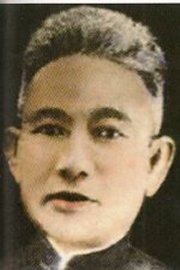 Tản Đà is the pen name of the poet Nguyễn Khắc Hiếu (1889-1939). It combines the name of a mountain, Tản, and that of a river, Đà, which are the two famous landmarks of
his birthplace in North Vietnam. Born ìnto a familv of literati and mandarins, Tản Đà was a link between two important eras of Vietnamese literature - the writings of
Confucian tradition of the nineteenth century and the writings under western influence in the early part of the twentieth century. A lifelong poet and journalist, Tản Đà served
as publisher of An Nam Tạp Chí in Hà Nội and Nam Định and as editor of Hữu Thanh in Hà Nội. Later, he collaborated with fellow journalists in Saigon.
Yearning for a liberation of the country from French domination, he met with and supported the patriots Phan Bội Châu and Nguyễn Thái Học. The two prestigious magazines of that time,
Đông Dương Tạp Chí edited by Nguyễn Văn Vĩnh and Nam Phong Tạp Chí edited by Phạm Quỳnh, sought his collaboration because of his great fame. whether he worked for
himself or for others, he remained faithful to his own philosophy of life, especially his theory of "thiên lương" (tentatively translated as "conscience" for lack of a better word).
According to Hà Như Chi (1958), Tản Đà's "thiên lương" can be understood as "a thing that is at the top of the invisible; it is the benevolence that mankind has been endowed with
by nature. If it is low, the person wlll misbehave, be rude, and achieve little; on the contrary, if it is high, it will produce heroes and sages." He urged people to nurture and
develop this innate quality in order to serve life better.
Tản Đà is the pen name of the poet Nguyễn Khắc Hiếu (1889-1939). It combines the name of a mountain, Tản, and that of a river, Đà, which are the two famous landmarks of
his birthplace in North Vietnam. Born ìnto a familv of literati and mandarins, Tản Đà was a link between two important eras of Vietnamese literature - the writings of
Confucian tradition of the nineteenth century and the writings under western influence in the early part of the twentieth century. A lifelong poet and journalist, Tản Đà served
as publisher of An Nam Tạp Chí in Hà Nội and Nam Định and as editor of Hữu Thanh in Hà Nội. Later, he collaborated with fellow journalists in Saigon.
Yearning for a liberation of the country from French domination, he met with and supported the patriots Phan Bội Châu and Nguyễn Thái Học. The two prestigious magazines of that time,
Đông Dương Tạp Chí edited by Nguyễn Văn Vĩnh and Nam Phong Tạp Chí edited by Phạm Quỳnh, sought his collaboration because of his great fame. whether he worked for
himself or for others, he remained faithful to his own philosophy of life, especially his theory of "thiên lương" (tentatively translated as "conscience" for lack of a better word).
According to Hà Như Chi (1958), Tản Đà's "thiên lương" can be understood as "a thing that is at the top of the invisible; it is the benevolence that mankind has been endowed with
by nature. If it is low, the person wlll misbehave, be rude, and achieve little; on the contrary, if it is high, it will produce heroes and sages." He urged people to nurture and
develop this innate quality in order to serve life better.
As a poet and writer, Tản Đà admitted that his writing was "for the sake of life" (văn vị đời) and that he embraced both "big dreams" (mộng lớn) and "small dreams" (mộng con). Such heartwarming aspirations pervade the poem Thề Non Nước provided below with its translation into English and annotations:
THỀ NON NƯỚC
Nước non nặng một lời thề,
Nước đi đi mãi không về cùng non.
Nhớ lời nguyện nước thề non,
Nước đi chưa lại, non còn đứng không.
Non cao những ngóng cung trông
Suối khô dòng lệ chờ mong tháng ngày.
Xương mai một nắm hào gầy,
Tóc mây một mái đã đầy tuyết sương.
Trời tây ngả bóng tà dương,
Càng phơi vẻ ngọc nét vàng phôi pha.
Non cao tuổi vẫn chưa già,
Non thời nhớ nước, nước mà quên non.
Dù cho sông cạn đá mòn,
Còn non còn nước hãy còn thề xưa.
Non cao đã biết hay chưa?
Nước đi ra bể lại mưa về nguồn.
Nước non hội ngộ còn luôn,
Bảo cho non chớ có buồn làm chi.
Nước kia dù hãy còn đi,
Ngàn dâu xanh tốt non thì cứ vui.
Nghìn năm giao ước kết đôi,
Non non nước nước chưa nguôi lời thề.
THE VOW BETWEEN MOUNTAIN AND RIVER[1]
The mountain and the river had a solemn vow, [2]
Yet the river kept flowing away without returning.
Recalling their eternal pledge,
The mountain stays idle while the river is away.
Standing tall, it just watches and waits with impatience, [3]
The extended wait has dried up its spring of tears.
Its smattering of frail bones has worn out,
Its cloud of hair is covered with snow and frost.
The sun is setting in the west, [4]
Revealing the mountain's fading jade and gold.
Tall mountain is still young,
It misses the river, which may have forgotten it.
Even though stone may wear down and water may dry up, [5]
As long as mountain ơnd river exist, their vow should endure.
Tall mountain, do you know this yet?
Carried to the sea, water now returns to its source as rain.
Moutain and river shall oftentimes meet again;[6]
Thus, there is no reason for mountain to be so sad.
Although river is stlll gone,
With lush green mulberry fields flourishing, o mountain, perk up!
Since they have pledged eternal vow to each other,[7]
The bond between mountain and river shall never break.
ANNOTATIONS
[l] "Mountain and river" (poetically rendered as "non nước") also means "country" in Vietnamese. This poetic gem is cherished by the people, for it showed the poet's extraordinary devotion to his native land, a theme he also expounded in other poems. In his Ode to a Torn Map (Vịnh Bức Dư Đồ Rách) he bitterly deplored the transformation of his once-splendid homeland into a "tattered and torn" country, symbolized by a map of a same condition: "sao đến bây giờ rách tả tơi?" (Why is it now tattered and torn?). In his Đêm Tối (Darh Night), he asked himself, "kiếm đâu cho thấy mặt anh hùng" "(Where on earth will we find a hero) who would emancipate the country already more than fifty years under the atrocious French yoke (Nguyễn Xuân Thọ, 1994). In his essay Bức Thơ Rơi (The Open Letter), although he sounded disappointed, he suggested other ways to protect the race and the culture, reasoning cogently "há phải vai đeo cung kiếm mới là chân chính ái quốc?" (Must one shoulder bows and swords to be genuinety patriotic?). Although he knew his limits, admitting poignantly "Bốn mặt non sông, một mái chèo" (Four sides of the country, one oar") in yet another patriotic poem titled Sông Cái, Chiếc Thuyền Nan (Large River, Basket-boat), he did not allow himself to be quiet.
Thề Non Nước was not published separately; it was instead part of a story bearing the same title which related the poet's romance with a songstress named Vân Anh. According to Phạm Thế Ngũ (1966, pages 308-309), the poem can have three different interpretations: "The first one is purely descriptive. The painting in the story showed a mountain with a green mulberry grove at its foot and a scrawny apricot tree. After Vân Anh pointed out that there was only mountain and no river, the poet composed this poem to explain the river's absence, to be added to the painting.~ Another interpretation is purely romantic. The poet, like water in the river, kept flowing away while his lover was pining for his return. However, the poet never forgot the vow between them, and indicated that he would come back. The third interpretation is that the poem illustrates the righteousness of its writer, who borrowed the story of a beautiful woman and an artist in a red-light quarter to express his devotion to his country. The vow between mountain and river is also the poet's vow to his homeland, which he has served since his youth, trying to restore a torn map and save a country fading under the sun. He cautiously informed readers that he would never forget that vow."
[2] This poem has a clear and tight structure. Presenting a sentimental drama, this opening stanza sets the tone for the poem. The remaining stanzas expound the pain of waiting by the mountain for the river, the explanation for the absence and the eventual return of the river, and the renewal of the vow between the mountain and the river.
[3], [4] These two stanzas depict the pining of the mountain as it hopelessly awaits the river's return. Tản Đà uses conventional, yet refined, terms to describe the lonesome mountain as well as the moral and physical deterioration of a woman gnawed by an extended wait. The terms xương mai, hao gầy, tóc mây, and the phrase đã đầy tuyết sương, albeit trite, elegantly describe her frail beauty. At the same time, the terms mây, sương, tuyết are all apt for describing a mountain landscape. The terms vẻ ngọc and nét vàng in the third stanza suggest that the woman's good looks stay on despite the passing of time. The last verse of this stanza, Non thời nhớ nước, nước mà quên non is an agonizing cri de coeur from the mountain to the river. This heartfelt appeal will be matched by a categorically reassuring response from the river (please see annotation [7])
[5], [6] These two stanzas cover the river's reiteration of the vow and the sharing of some uplifting news, based on a scientific explanation of the water cycle in nature - the eventual return of water in the form of rain is a certainty. Along with the uplifting news is the river's calm consolation for the mountain and urging it to cheer up because they will meet again.
[7] This couplet clinches the poem with a heartening renewal of the eternal vow between the mountain and the river. In addition to a convincing interpretation of this vow mentioned by Phạm Thế Ngũ (1966) cited earlier in this article, many readers understand this vow as a sworn determination by Vietnamese patriots who fought to regain their country's sovereignty. Thus, while the mountain symbolizes those who remained at home, the river stands for those who had to go far away to achieve this common goal.
Đàm Trung Pháp & Viên Linh
(trích từ Khởi Hành số 176, tháng 6.2011)
REFERENCES
Hà Như Chi (1958). Một Thời Lãng Mạn Trong Thi Ca Việt Nam. Saigon: Tân Việt.
Phạm Thế Ngũ (1965). Việt Nam Văn Học Sử Giản ước Tân Biên (Tập III). Saigon: Anh Phương.
Phạm Thế Ngũ (1966). Kim Văn Tân Tuyển. Saigon: Quốc Học Tùng Thư.
Xuân Diệu (1982). Thơ Tản Đà. Hà Nội: Văn Học.
Dương Đình Khuê (1990). Poèmes de Tản Đà Nguyễn Khắc Hiếu, rassemblés et édités par la maison Hương Sơn, Hanoi, traduits en francais par Dương Đình Khuê. Arlington, VA: Editions Phước Quế.
Nguyễn Xuân Thọ (1994). Les débuts de l'installation du système colonial francais au viet Nam. Saint Rafael, France: Author.
Trịnh Bá Đĩnh & Nguyễn Đức Mậu (2000). Tản Đà Về Tác Gia và Tác Phẩm. Hà Nội: Nhà Xuất Bản Giáo Dục.
Đỗ Đức Hiểu et al. (2004). Từ Điển Văn Học Bộ Mới. Hà Nội: Nhà Xuất Bản Thế Giới.
Ad-22-A_Newest-Feb25-2022 Ad-22-A_Newest-Feb25-2022
:: A Compelling Patriotic Poem by The Legendary Ly Dong A (1921-1946?)

Một vài bìa sách của Lý Đông A từ các ấn bản in trước 1975 tại Miền NamThe poet and thinker Lý Đông A's real name was Nguyễn Hữu Thanh. Born on January 3, 1921 in Hà Nam Province, he had attended elementary school and studied Chinese characters in his native village before he was sent to Hà Nội to further his education in a private school and in Quán Sứ Pagoda. In 1938, he started frequenting the mountain-top Yên Tử Pagoda in Hải Dương Province, where he used to meditate under an old pine tree. One day, while he was meditating, a bright red celestial light shone on him - a supernatural act, reverently explained by believers as the "corporal permeation by the divine light" or "linh quang thần nhập thể," which magnifled his mental prowess many-fold. Soon afterwards, urged by a group of scholars-turned-revolutionaries, he joined Nguyễn Hải Thần's National Restoration Force (Phục Quốc Quân). This force had to flee to China after they lost the Lạng Sơn Battle to the Việt Minh in 1940. For three years in Liu Zhou (Liễu Châu), Nguyễn Hữu Thanh taught at the Liu Zhou Military Academy anđ spent much time in the Liu Zhou Library to read and write books. He returned in 1943, disseminated his writings under the pen name of Thái Việt Lý Đông A, and founded the People's Party (Đảng Duy Dân). His major publications included Huyết Hoa (a collection of essays in the humanities), Đạo Trường Ngâm (a collection of patriotic poems), and Chu Tri Lục (an in-depth discussion of the platform of the People's Party). In early 1946, when the Việt Minh agreed in a treaty to let the French come back, he decided to confront the Việt Minh themselves at the Nga My Hill Battle Zone. His mystifying disappearance at the end of this battle left behind the legend of a short-lived genius, a superb political theorist, an amazing visionary with uncanny foreknowledge of what would happen to his country sixty years later. Inlight of his literary legacy, Lý Đông A is arguably the most righteous poet and thinker of Vietnam in the twentieth century.
The poem Thi Nhiệt (Poetic Passion), translated into English free verse with annotations below, reflects his upright belief in the mission of writers expressed in the essay Muses that publishers used as a preface for his book Đạo Trường Ngâm, as cited by Viên Linh (2010, page 14): "Writers must inspire love; love is the blood nature of mankind. Writers must infuse love in the ups and downs of history, in the present and future, in the real life, life with blood, and life of struggling of mankind. Writers must extol selfless victories."
THI NHIỆT
Ta đã về đứng bên bờ Pắc Nậm
Mặc heo may quấn quýt hồn cố hương,
Thấm hàng cây lấp ló những ven tường.
Hòa làn khói mơ màng bao nhớ ước.
Cách dòng nước ta là người mất nước,
Nước non ta, ai ngăn trở ta về?
Thấy người quê không được tỏ tình quê,
Rõ trước mắt mà tìm đâu cho thấy?
Hãy hét lớn hai bàn tay nắm lấy
Hãy khua tan quân địch của Rồng Tiên
Hãy làm cho giống Việt lại đoàn viên,
Quê nước ở trong đáy dòng sống máu!
Quê nước ở trong đáy dòng sống máu!
4822 Tuổi Việt
POETIC PASSION
I came back standing on the bank of Pắc Nậm [1]
In spite of the nostalgia-imbued north-west wind [2]
Which permeated lines of trees half-hidden along walls
Blending with a dream-like trail of smoke of memories and aspirations.
On this side of the stream I am a person who has lost his country, [3]
This land of mine, who prevents me from returning? [4]
From sharing confidence with my fellow countrymen I see,
Clearly in front of my eyes, yet nowhere to be found?
Clasping our hands let's shout,
Let's wipe out the enemies of Dragons and Fairies [5]
Let's re-unite the Viet race,
Whose native land is in the bottom of their blood lifeline![6]
Whose native land is in the bottom of their blood lifeline!
Viet Age 4822[7]
[l] Pắc Nậm is the name in an ethnic-minority language of a small river in the Cao Bằng and Lạng Sơn area, near the Vietnam-china border. Where Lý Đông A stood on the bank of Pắc Nậm River was just a few miles away from Hồ Chí Minh's Pắc Bó Cave hideout.
[2] This north-west wind (gió heo may) is a cold autumnal movement of the air. It usually comes with a sad, overcast sky. When accompanied by dragonflies, it is a precursor for a storm, according to a time-honored Vietnamese proverb that says "Gió heo may, chuồn chuồn bay thì bão."
This cold wind exacerbated the poet's sense of nostalgia and revived his memories and aspirations; these strong emotions pervade the first stanza of the poem. In the original poem, this stanza also provides readers with the delightful alliteration of three disyllabic verbs: "quấn quýt," "lấp ló," and "mơ màng."
[3] The poet's country was lost to the French colonialists, who were still ruling Vietnam (with Emperor Bảo Đại serving as a pitiful figurehead) when this poem was written in 1943.
[4] The subject of the verb "prevents" in this verse could be either the French or the Viet Minh, or both. The pain of a man without a country along with his unbearable frustration of not being in communication with his fellow countrymen spread through the second stanza of the poem. While the first verse of this stanza in the original poem contains a play on the word "nước," which means both "water" and "country" in Vietnamese, the third verse provides two inimitable innovative collocations, namely "người quê" and "tình quê,", by the poet.
[5] As the Vietnamese people's mythological ancestors were dragons and fairies, the Vietnamese still frequently refer to themselves as "con Rồng cháu Tiên" (descendants of Dragons and Fairies) with pride.
[6] This powerful last verse of the third stanza, repeated as the conclusion for the poem, illustrates the language of the People's Party (ngôn ngữ Duy Dân) made popular by Lý Đông A, who had a knack for assigning new meanings to common words. It includes the new coinages "quê nước" (native land) and "dòng sống máư" (blood lifeline), as well as Lý Đông A's fondness for the word "đáy" (bottom). He used the terms "đáy tầng" (bottom stratum) to mean "people living in the countryside" and "mặt tầng" (top stratum) to mean "people living in the cities" as he wrote eloquently in Huyết Hoa (page 131): "The winds that restore the people and their time do not blow on the top stratum, but only on the bottom stratum so as to raise the bottom waves. Those winds and waves alone have the force to overthrow all that is on the top. Those winds are the winds of the Soul and of History. Deep down in the bottom of the people, they are the winds of the Gut." If nostalgia and aspirations pervade the first stanza, and frustration and shame saturate the second stanza, a cathartic patriotic exhortation to the people to unite, to wipe out enemies underlies the third stanza. Lý Đông A's exhortation is a compelling one!
[7] "Viet age 4822" was Lý Đông A's innovative way to mark the year in which this poem was written (1943). According to historical records, the country named Văn Lang (or Việt Nam later on) was founded in the year 2879 BC; thus by adding 2879 to 1943, he came out with the Viet age of 4822.
Đàm Trung Pháp & Viên Linh
(trích từ Khởi Hành số 175, tháng 5.2011)
REFERENCES
Lý Đông A (1969). Chu Tri Lục. Saigon: Gió Đáy.
Lý Đông A (1986). Huyết Hoa. San José: Nhóm Nghiên Cứu Văn Hóa Dân Tộc Việt.
Lý Đông A (1992). Đạo Trường Ngâm. Westminster, CA: Vạn Thắng Thư Cục.
Phong Trào Quốc Dân Việt Nam Hành Động (2000). Nhân Chủ Học Thuyết. Houston: Author.
Viên Linh (2010). Lý Đông A, Chính Khí Việt & Nghệ Thuật. Khởi Hành Literary Review, 15(170), 12-14.
Ad-22-A_Newest-Feb25-2022 Ad-22-A_Newest-Feb25-2022
:: Vũ Hoàng Chương (1915-1976) South Vietnam's Fearless Poet Laureate
According to Mencius, a defining quality of a great man is his fearless adhesion to his principles in the face of threats and the use of force. This crown-jewel element of moral character is expressed in Sino-Vietnamese as "uy vũ bất năng khuất." Vũ Hoàng Chương, South Vietnam's poet laureate, proved this quality by penning the poem ODE TO A PAINTING OF CHICKENS AND PIGS (Vịnh Tranh Gà Lợn) to satirize the egregious communist victors of the Vietnam War, while ushering in the Lunar New Year of the Dragon (Bính Thìn) in early 1976. The prosodically regulated eightline sonnet in Vietnamese is given below, followed by our blank-verse translation of it into English:
 VỊNH TRANH GÀ LỢN
VỊNH TRANH GÀ LỢNSáng chưa sáng hẳn tối không đành
Gà lợn om xòm rối bức tranh
Rằng vách có tai thơ có họa
Biết lòng ai đỏ mắt ai xanh
Mắt gà huynh đệ bao lần quáng
Lòng lợn âm dương một tấc thành
Cục tác nữa chi ngừng ủn ỉn
Nghe rồng ngâm váng khúc tân thanh.
Vũ Hoàng Chương
 Dawn it's clearly not, yet dusk too soon
Dawn it's clearly not, yet dusk too soonBoisterous chickens and pigs stir up the painting
Walls have ears, poetry runs risks
How are we to tell whose heart is red and
whose eyes blue
Brotherly chicken eyes have oftentimes been blinded
Pig guts have stayed true in master of life and death
It's about time to stop your crows and your oinks
To listen to the dragon sonorously declaim a new song.
As anticipated, the poet's puplic defiance of the new oppressive regime landed him in jail, from which he was released when he was near death. Five days later, on September 6, 1976, the undaunted poet died at home.
 Vũ Hoàng Chương's poetic genius graces the poem with profound allegories, apt metaphors, delightful collocations, amazing expressions capable of double interpretations, and masterful syntactical and semantic parallelism in the
two middle couplets (i.e., verse 3-4 and 5-6). Unfortunately, these poetic felicities have been lost in the translation. Wishing to somehow compensate for
this huge injustice, we humbly provide the following notes for the original poem.
Vũ Hoàng Chương's poetic genius graces the poem with profound allegories, apt metaphors, delightful collocations, amazing expressions capable of double interpretations, and masterful syntactical and semantic parallelism in the
two middle couplets (i.e., verse 3-4 and 5-6). Unfortunately, these poetic felicities have been lost in the translation. Wishing to somehow compensate for
this huge injustice, we humbly provide the following notes for the original poem.
Needless to say, we will be grateful for constructive comments from our readers.
The poem's title suggests that it is about the celebration of the arrival of a lunar new year (Tết) in Vietnam. On this occasion, paintings that are bright, showy and simple in content and form (tranh dân gian) are on display to entertain, educate, or express New Year's wishes to visitors. Paintings expressing good wishes often contain chickens and pigs in them, as well as generals (tướng quân) and doctors of literature (tiến sĩ). Those focused on entertaining feature such comical themes as the rat that finished first in an imperial examination to select doctors of literature (chuột đỗ trạng nguyên). And among paintings praising the value of education, a popular one shows a toad going to school (cóc đi học).
Verses 1 and 2 allude to a most daunting time of uncertainty in the nation's history, with rampant lawlessness and utter political chaos, after South Vietnam had to surrender to the invading North Vietnamese military force in the spring of 1975. Chickens and pigs are introduced as the main characters of the painting. They also serve as the metaphors for the new victors of the war, who were indeed boisterous and caused upheavals in the South Vietnamese society.
Verses 3 and 4 make up a splendid syntactical and semantic parallelism graced by a number of popular proverbs depicting the insecure feeling of being surrounded by spies. The clause "thơ có họa" in verse 3 can be understood as either "poetry with paintings in it" or "(writing) poetry runs risks." The implied meaning of verse 4 is that it is impossible to distinguish friends (whose eyes are blue) from foes (whose hearts are red).
Verses 5 and 6 make up another superb syntactical and semantic parallelism adorned by a number of delightful collocations joining such words as "mắt" (eye) and "gà" (chicken) to invoke the vision disorder known as nyctalopia (bệnh quáng gà) and "lòng" (gut) and "lợn" (pig) to refer to a Vietnamese delicacy often served on festive occasions. While verse 5 is an admission that people in the South have often been duped by communist propagandas, verse 6 extols the unfailing truthfulness in the hearts of these same peole.
Verses 7 and 8, the powerful final couplet, cinch the poem with a strong message which scolds the gloating victors and tells them to stop crowing and oinking in order to listen to a sonorous declamation of a new song by the dragon. We surmise the dragon here is the metaphor for the poet himself, and his "new song" (khúc tân thanh) reminds readers of Đoạn Trường Tân Thanh, the original title that Nguyễn Du had given to his Truyện Kiều, Vietnam's poetic magnum opus. And that original title can be translated as "New Song of the Severed Gut."
Đàm Trung Pháp & Viên Linh
(trích từ Khởi Hành số 174, tháng 4.2011)
ABOUT THE AUTHORS
Đàm Trung Pháp is currently a tenured full professor of linguistics at Texas Woman's University. He is also the series editor of monographs on language education under the auspices of the Federation of North Texas Area Universities. From 1968 to 1975, Professor Đàm taught English at the University of Saigon and directed its Center of Languages.
Viên Linh is a noted poet and novelist, whose first collection of poems titled Hoa Than (Metamorphosis) was published in Saigon in 1964. ln 1974 he won First Place for Novels in the National Literature and Arts Prizes. He was also the recipient of a Ford Foundation fellowship in 1976 to do research on Literary Trends in South Vietnam during the period 1954-1975. He is currently editor-publisher of Khoi Hanh Literary Magazine.
Ad-22-A_Newest-Feb25-2022 Ad-22-A_Newest-Feb25-2022
-
Thơ và bài viết về Thơ (Học Xá) Ad-31 Ad-31 = QC_250-250 (Học Xá) Thơ và Bài viết về Thơ:
Cùng Mục (Link) • Quần Đảo Tráo Tên - Tự Bạch & Chương Mở (Đỗ Quyên)
• Ngôn ngữ thơ là cái quái gì vậy? (Lê Hữu)
• Trường Ca Việt Nam (Thiếu Khanh)
• Chiều Trên Phá Tam Giang (Tô Thùy Yên)
• Ba Dòng Thơ Tiêu Biểu Phương Đông: Thơ Thiền Việt Nam, Đường Thi Trung Hoa Và Haiku Của Nhật (Thái Tú Hạp)

Ad-33 (Học Xá) Ad-33 - Google - QC4 (Học Xá) Thơ Dịch:
(Vietnamese Poetry translated into English)
 Đàm Trung Pháp & Viên Linh dịch và chú giải:
Đàm Trung Pháp & Viên Linh dịch và chú giải:Vịnh Hai bà Trưng (Hồng Đức Quốc Âm Thi Tập)
Ăn Cỗ Đầu Người (Nguyễn Biểu)
Đoạt Sáo Chương Dương Độ (Trần Quang Khải)
Nam Quốc Sơn Hà (Lý Thường Kiệt)
......
 Huỳnh Sanh Thông dịch:
Huỳnh Sanh Thông dịch:Thăng Long (Nguyễn Du)
Vọng Phu Thạch (Nguyễn Du)
Hồ Hoàn Kiếm (Vô Danh)
(Bà Huyện Thanh Quan)
......
 Lê Đình Nhất-Lang & Nguyễn Tiến Văn dịch:
Lê Đình Nhất-Lang & Nguyễn Tiến Văn dịch:Cùng khổ (Bùi Chát)
Hoa sữa (Bùi Chát)
Bài thơ một vần (Bùi Chát)
......
 Các tác giả khác dịch:
Các tác giả khác dịch:Tôi đã cố bám lấy đất nước tôi (Nguyễn Đình Toàn) (Do Dinh Tuan dịch)
Bữa Tiệc Hòa Bình (Nguyễn Thị Thanh Bình) (Nguyễn Ngọc Bích dịch)
Từ Một Cuốn Rún (Nguyễn Thị Thanh Bình) (Đinh Từ Bích Thúy dịch)
Ad-31 Ad-31 = QC_250-250 (Học Xá) Thơ Cổ:
Cùng Mục & Chỉ Số (Link) • Sau đúng 60 năm, đọc lại bài thơ trừ tịch của Đặng Đức Siêu và Đông Hồ (Trần Từ Mai )
• Mùa Thu Trong Đường Thi (Lê Đình Thông)
• Những Vần Thơ Xuân Của Vua Trần Nhân Tông (Tạ Quốc Tuấn)
• Về một bài thơ dạy học vào mùa xuân của Trần Quý Cáp (Ngô Thời Đôn)
• Cảnh Đẹp Thành Thăng Long Thời Tây Sơn Qua Thi Ca Đoàn Nguyễn Tuấn (Phạm Trọng Chánh)

Ngày Xuân Đọc "Đào Hoa Thi" của Nguyễn Trãi (Trần Uyên Thi)
Thơ Lý Bạch (Đàm Trung Pháp)
Thơ Tuyển:
Cùng Mục & Chỉ Số (Link) • Quần Đảo Tráo Tên - Tự Bạch & Chương Mở (Đỗ Quyên)
• Trường Ca Việt Nam (Thiếu Khanh)
• Chiều Trên Phá Tam Giang (Tô Thùy Yên)
• Vài lời Cần Nói Về Ngày 30 Tháng 4 (Bùi Chí Vinh)
• Điếu thi: Thủ̉y Mộ Quan (Viên Linh)

Ad-31 Ad-31 = QC_250-250 (Học Xá) Trang Thơ các Tác Giả:
Cùng Chỉ Số - Lưu Trữ (Link)  Chu Ngạn Thư
Chu Ngạn Thư  Chu Trầm Nguyên Minh
Chu Trầm Nguyên Minh  Hồ Minh Dũng
Hồ Minh Dũng  Hoàng Anh Tuấn
Hoàng Anh Tuấn  Hoàng Hương Trang
Hoàng Hương Trang  Huỳnh Liễu-Ngạn
Huỳnh Liễu-Ngạn  Lê Hữu Nghĩa
Lê Hữu Nghĩa  Lê Phương Nguyên
Lê Phương Nguyên  Lê Văn Trung
Lê Văn Trung  Mai Trung Tĩnh
Mai Trung Tĩnh 
DANH NGÔN (Proverbs)
• Chí Khí
• Xử Thế
TỤC NGỮ (Proverbs)
• Trúc dẫu cháy đốt ngay vẫn thẳng
ĐỐ VUI (Puzzles)
Ad-31 Ad-31 = QC_250-250 (Học Xá)
|
© Hoc Xá 2002 (T.V. Phê - phevtran@gmail.com) |



